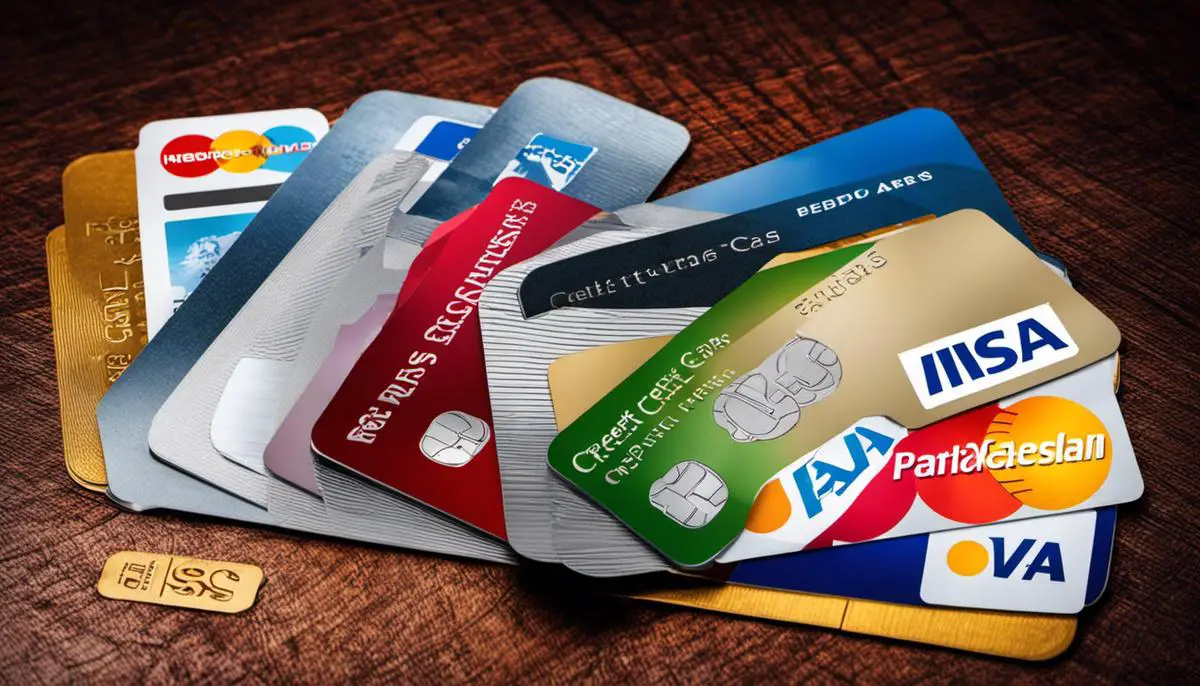List Of Business Credit Cards That Don’t Report To Personal Credit
Many entrepreneurs and small business owners depends on business credit cards to keep their personal and business expenses separate. However, not all business credit cards are created equal, and some may report your business card activity on your personal credit report. This article aims to provide a comprehensive knowledge to those business credit cards that do not report to personal credit along with a deep dive into the nuanced differences between personal and business credit, the significant features of business credit cards, and maintaining healthy personal and business credit separately.
When you’re running a business, you might want to ensure that your personal and business finances remain distinct. One way to achieve this is by using business credit cards that do not report your business expenditures on your personal credit report .
RELATED:- Best Credit Cards With Travel Insurance Benefits
Business And Personal Credit In-depth Review
Understanding Difference Between Business And Personal Credit
To fully understand the impact and function of various credit cards, it’s important to know the difference between business credit and personal credit. They are quite distinct, particularly in how they are reported, scored, and who they affect.
Personal credit is an individual’s credit history. It’s tracked by three major bureaus: Experian, TransUnion, and Equifax. Your personal credit score is determined by factors like payment history, debt owed, length of credit history, types of credit and new applications for credit. These personal credit scores directly influence the individual’s ability to secure loans, credit cards, or other forms of financial support.
Business credit, on the other hand, is associated with an EIN (Employer Identification Number), which is separate from an individual’s Social Security Number. Business credit is linked to your business’s debt repayment and credit history. Major business credit bureaus, such as Experian, Dun and Bradstreet, and Equifax Business, track these data points.
Benefits Of Business Credit Card
With business credit, the debt is on the business rather than the individual. This means if the business falls into financial trouble, the owner’s personal credit score isn’t dinged.
The mpact of Business Credit Cards on Personal Credit Reporting
When owning a business, it’s important to understand the potential impact of a business credit card on your personal credit score. Certain business credit cards report activity to personal credit bureaus and negative activity, such as late payments, can detrimentally affect one’s personal credit score.
However, not all business credit cards follow this practice. Cards from credit issuers such as Bank of America, Citi, and Wells Fargo, for instance, do not report to personal credit bureaus. Therefore, your business-related credit activities, be they positive or negative, will not influence your personal credit score.
Conversely, issuers like Capital One and Discover are known for generally reporting business credit card activity to personal credit bureaus. Yet, many more issuers only report negative activity, which could be detrimental to your personal score.
Proper management of personal and business credit requires understanding creditors and credit bureaus’ policies. By researching and understanding the terms of different business credit cards in advance, you make sure to protect your personal credit score while maintaining a clear demarcation between your personal and business finances
Business Credit Cards That Don’t Report to Personal Credit
Exploring Business Credit Cards That Don’t Impact Personal Credit
There is a selection of business credit cards that refrain from reporting to personal credit bureaus. This provides business owners with the beneficial ability to maintain a clear distinction between business and personal expenses, making financial management more straightforward.
- Capital One: Spark Cash for Business
The Capital One Spark Cash for Business focuses on offering unlimited cash back rewards at 2% for each purchase. This card has a $0 annual fee for the first year and $95 in subsequent years. To be eligible, the business must have a valid street address and the business owner should have an excellent credit score. To apply, one can fill the online application form on the Capital One website.
- The Bank of America: Business Advantage Travel Rewards World Mastercard
This card earns 1.5 rewards points for every dollar spent on all purchases, and 3 points per dollar spent when booking travel through Bank of America’s Travel Center. There is no annual fee, and no international transaction fees are applied. You would need to have an established credit history and a good to excellent credit rating to qualify. The application process also can be done online.
- American Express: Blue Business Cash Card
The Blue Business Cash Card from American Express offers 2% cash back on the first $50,000 in purchases annually, then 1% after that. The card has no annual fee. The application form is available on the American Express website. Applicants must have a good to excellent credit score.
- The Chase: Ink Business Unlimited Credit Card
Chase’s Ink Business Unlimited Credit Card offers 1.5% cash back on all purchases. There is no annual fee or minimum spending requirement. To apply, you can visit their website.
- BBVA Compass Secured Visa Business Credit Card
This card is best for businesses with little or no credit history. It offers 1 point for every $1 in qualifying purchases, and there’s no annual fee for the first year ($40 after that). An applicant would need to have a savings account with a minimum opening deposit and hard hold of $500 placed at account opening or whenever you request a credit limit increase
6. CitiBusiness® / AAdvantage® Platinum Select® Mastercard®:
Citi may not report this business card to personal credit bureaus.
7. PNC Cash Rewards Visa Signature Business Credit Card:
PNC usually doesn’t report business card activity to personal credit bureaus.
8. Wells Fargo Business Secured Credit Card:
This card is a secured business credit card and is less likely to impact your personal credit.
Read More
Credit Union Business Credit Cards:- Best Option
Hatch Business Credit Card: A Comprehensive Guide
Can I Add My Business To My Personal Credit Card
Credit Card Processing For Travel Business
Advantage Of Business Credit Card
Business Credit help owners to build or improve their business’ credit independently of their personal credit. While this can be a huge benefit, it’s also important to remember that non-payment or mismanagement of these business credit cards might have serious implications and penalties—the same as regular credit cards.
With business credit, the debt is on the business rather than the individual. This means if the business falls into financial trouble, the owner’s personal credit score isn’t dinged.
These bbusiness credit cards don’t report to personal credit, is assistance in segregating business and personal expenses, facilitating easier budget and cash flow management.
It aids in keeping your personal credit report free from business debt,
It helps when securing personal loans or mortgages by maintaining high personal credit scores.
Features of Business Credit Cards
Features of Business Credit Cards
Business credit cards offer diverse features beneficial for both corporate and small business owners which includes .
Rewards programs,
customizable spending limits,
employee cards
comprehensive expense tracking.
Lowe interest rate
Note that key feature of some business credit cards is their rewards programs. These programs may offer cash back, travel points, or other types of rewards, that can help reduce business costs by providing a return on spending.
Diversity Of Business Credit Card
(1). Many such cards also boast introductory bonuses or points for specific spending kinds.
(2). These rates can change significantly based on the card issuer and the business’s creditworthiness.
(3) .The cards suit businesses carrying balances month-to-month, while cards with higher rates but better rewards are more suited for businesses that pay full balances every month.
(4) .Many business credit cards come with annual fees, with some charging significant fees while others don’t charge at all. Generally speaking, cards with higher annual fees offer more rewarding benefits, making the cost worthwhile when evaluated against the card’s overall value.
The reporting policy of business credit cards is another critical aspect. Some cards, like the Brex Card for Startups, the Stripe Corporate Card, and certain cards from Wells Fargo and Citi, do not report to personal credit bureaus unless an account default occurs. Using these cards responsibly can safeguard your personal credit score.
Maintaining Healthy Business and Personal Credit Separately
The Interplay Between Business Credit Cards and Personal Credit Reporting
The link between business credit cards and credit reporting may vary depending on the issuer’s policies. Some card issuers report to both business and personal credit bureaus, while others report solely to either. It is worth noting that business owners may risk their personal credit score if their chosen card reports to personal credit bureaus and they fail to meet payment deadlines. Therefore, ensuring you opt for a business credit card that restricts its reporting to the business credit bureaus can protect your personal credit score from being affected by any business-related credit activities.
Business Credit Cards that Do Not Report to Personal Credit Bureaus
Not all business credit cards report to the personal credit score. Some credit cards report only to business credit bureaus. Among these cards are the Chase Ink business credit cards, Bank of America business credit cards, and many of the American Express business credit cards. Conversely, Capital One and Discover business credit cards report to the personal credit bureaus. It is always best to check with the card issuer to understand their reporting practices.
Separating Business and Personal Credit
Maintaining separate credit activities for business and personal use is one way to protect personal finances. Using business credit cards that don’t report to personal credit bureaus can help maintain a healthy personal credit score that won’t get affected by business operations. Separate credit activities allow for better financial management and accurate tracking of expenses.
Monitoring Credit Reports Regularly
One of the ways to keep personal finances unaffected by business credit activities is by monitoring credit reports regularly. Regularly checking your credit reports allows you to identify any incorrect information or potential frauds that could negatively impact your financial standing. With apps and online tools, it has become easy to track and manage both your business and personal credit scores.
Importance of a Healthy Personal Credit
Maintaining a healthy personal credit score is important as it determines your creditworthiness. Lenders and financial institutions consider your credit score while deciding on loan approvals, card issuances, and interest rates. An affected personal credit score can hinder your chances of securing loans for personal use or investment opportunities. Therefore, keeping your business credit activities separate is crucial to ensuring personal financial wellbeing.
Strategies for Healthy Credit
Some strategies for maintaining healthy business and personal credit include: making on-time payments as late payments could affect the credit score negatively, keeping credit balances low, applying for new credit sparingly, and regularly reviewing credit reports to identify any potential issues.
Frequently Asked Questions (FAQs)
Can I build business credit with a card that doesn’t report to personal credit?
Yes, business credit cards that don’t report to personal credit can help you build a separate business credit profile.
Are there any downsides to using these cards?
While these cards offer benefits, they may have higher APRs or fewer rewards compared to personal credit cards. It’s essential to weigh the pros and cons.
Can I get a business credit card with bad personal credit?
It can be challenging, but some issuers may still approve your application based on your business’s financial health.
Will using a business credit card affect my personal credit score?
No, if the card doesn’t report to personal credit bureaus, your personal credit score remains unaffected.
How do I monitor my business credit score?
You can monitor your business credit score through various credit bureaus, such as Dun & Bradstreet and Experian.
What’s the best way to establish a strong business credit history?
Consistently use your business credit card for expenses, pay bills on time, and maintain a positive payment history.
Conclusion
Business credit cards that do not report to personal credit bureaus could be a strategic tool for entrepreneurs willing to separate their personal and business financial affairs. However, selecting the right card demands careful consideration of various factors, such as the rewards programs, interest rates, and annual fees. Additionally, keeping the personal finances unaffected by business credit activities also requires consistent monitoring and credit report reviews. Overall, finding and effectively leveraging a business credit card that doesn’t report to personal credit is more than a mere task – it’s a crucial step towards sustained financial health and business growth.










